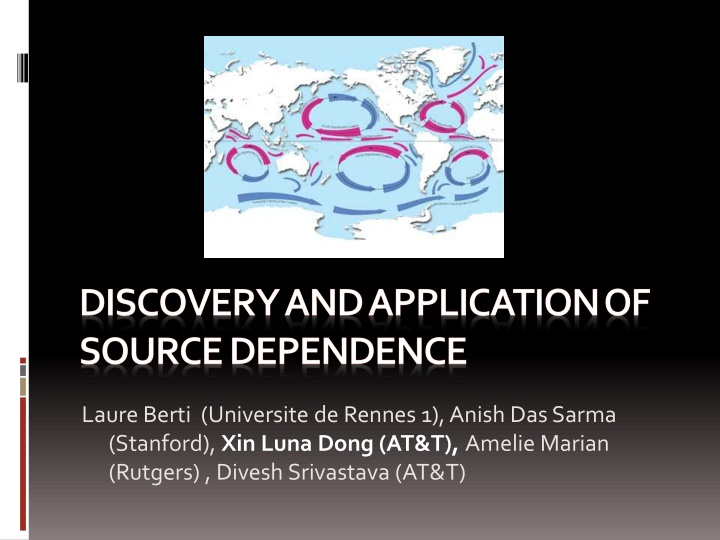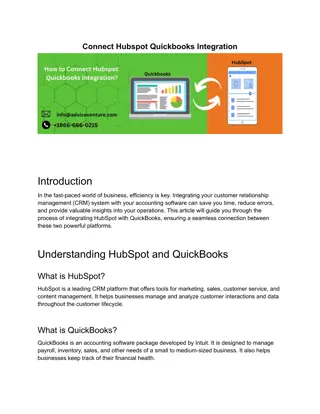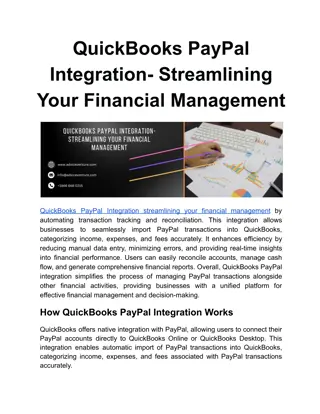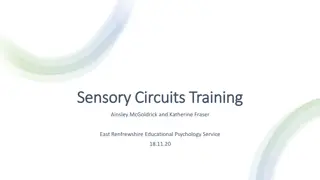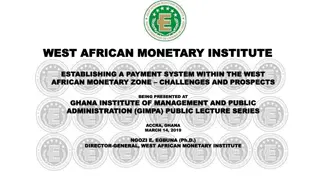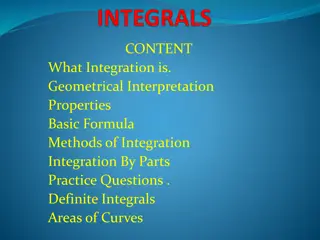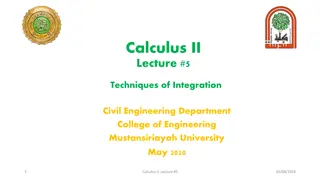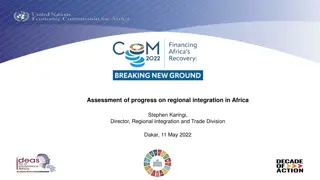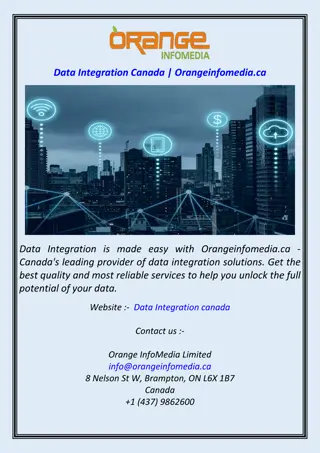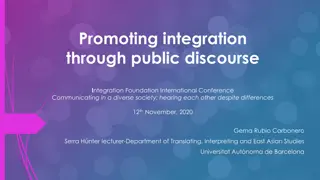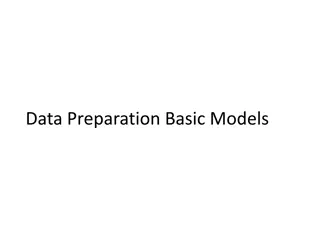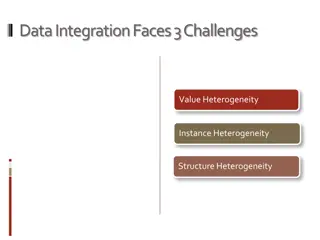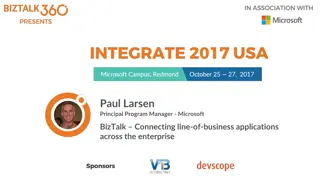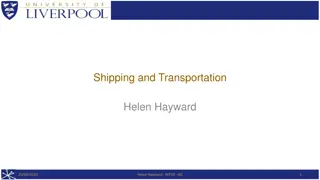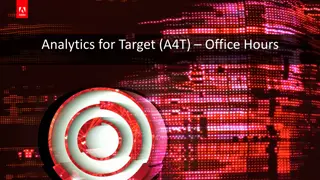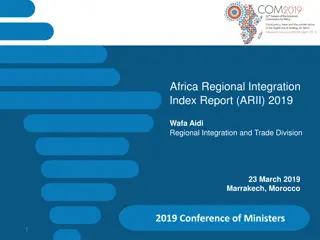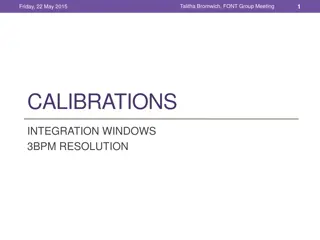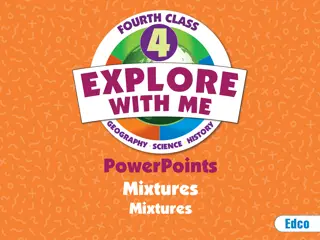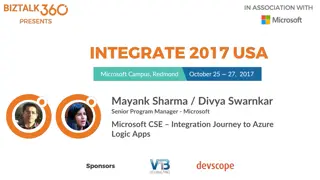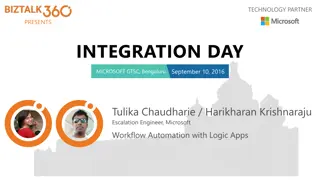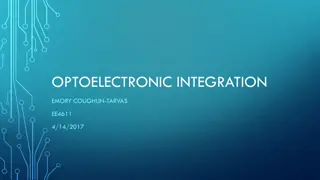Challenges and Solutions in Data Integration
Facing challenges like data conflicts, instance and structure heterogeneity, the field of data integration encounters complexities in schema matching, model management, and query answering. Existing solutions assuming independence of data sources are now impacted by advanced technologies enabling easy data copying. False information on the web further complicates the truth-finding process, prompting strategies like naive voting and identifying dependence between data sources.
Download Presentation

Please find below an Image/Link to download the presentation.
The content on the website is provided AS IS for your information and personal use only. It may not be sold, licensed, or shared on other websites without obtaining consent from the author.If you encounter any issues during the download, it is possible that the publisher has removed the file from their server.
You are allowed to download the files provided on this website for personal or commercial use, subject to the condition that they are used lawfully. All files are the property of their respective owners.
The content on the website is provided AS IS for your information and personal use only. It may not be sold, licensed, or shared on other websites without obtaining consent from the author.
E N D
Presentation Transcript
Laure Berti (Universite de Rennes 1), Anish Das Sarma (Stanford), Xin Luna Dong (AT&T), Amelie Marian (Rutgers) , Divesh Srivastava (AT&T)
Challenges that Data Integration Faces Data Conflicts Instance Heterogeneity Structure Heterogeneity
Challenges that Data Integration Faces Data Conflicts Instance Heterogeneity Structure Heterogeneity Schema matching Model management Query answering using views Information extraction
Challenges that Data Integration Faces Scissors Data Conflicts Paper Scissors Instance Heterogeneity Structure Heterogeneity String matching (edit distance, token-based, etc.) Object matching (aka. record linkage, reference reconciliation, )
Challenges that Data Integration Faces Scissors Data Conflicts Glue Instance Heterogeneity Structure Heterogeneity Data fusion Truth discovery
Existing Solutions Assume Independence of Data Sources However, advanced technologies, such as the Web, eases copying of data between data sources. Such copying can significantly affect effectiveness of existing techniques. Data Conflicts Instance Heterogeneity Assume INDEPENDENCE of data sources Structure Heterogeneity Data fusion Truth discovery String matching (edit distance, token-based, etc.) Object matching (aka. record linkage, reference reconciliation, ) Schema matching Model management Query answering using views Information extraction
False Information on the Web UA s bankruptcy Chicago Tribune, 2002 Sun-Sentinel.com Google News Bloomberg.com The UAL stock plummeted to $3 from $12.5
How to Find the Truth? Na ve voting: among conflicting values, choose the one that is asserted by the most number of data sources However, A lie told often enough becomes the truth. Vladimir Lenin Identify dependencebetween data sources: One source copies from other sources Opinion by one source is influenced by others
I. Identifying Dependence bet. Sources Intuition I: decide dependence (w/o direction) Let D1, D2 be data from two sources. D1 and D2 are dependent if Pr(D1, D2) <> Pr(D1) * Pr(D2).
Dependence? Are Source 1 and Source 2 dependent? Not necessarily Source 1 on USA Presidents: Source 2 on USA Presidents: 1st: George Washington 1st: George Washington 2nd: John Adams 2nd: John Adams 3rd: Thomas Jefferson 3rd: Thomas Jefferson 4th: James Madison 4th: James Madison 41st: George H.W. Bush 41st: George H.W. Bush 42nd: William J. Clinton 42nd: William J. Clinton 43rd : George W. Bush 43rd : George W. Bush 44th: Barack Obama 44th: Barack Obama
Dependence? --Common Errors Are Source 1 and Source 2 dependent? Very likely Source 1 on USA Presidents: Source 2 on USA Presidents: 1st: George Washington 1st: George Washington 2nd: Benjamin Franklin 2nd: Benjamin Franklin 3rd: Tom Jefferson 3rd: Tom Jefferson 4th: Abraham Lincoln 4th: Abraham Lincoln 41st: George W. Bush 41st: George W. Bush 42nd: Hillary Clinton 42nd: Hillary Clinton 43rd : Mickey Mouse 43rd : Mickey Mouse 44th: Barack Obama 44th: John McCain
I. Identifying Dependence bet. Sources Intuition I: decidedependence (w/o direction) Let D1, D2 be data from two sources. D1 and D2 are dependent if Pr(D1, D2) <> Pr(D1) * Pr(D2). Intuition II: decide copying direction Let F be a property function of the data; e.g., accuracy of data. D1 is likely to be dependent on D2 if |F(D1 D2)-F(D1-D2)| > |F(D1 D2)-F(D2-D1)| .
Dependence? --Different Accuracy S1 more likely to be a copier Are Source 1 and Source 2 dependent? Source 1 on USA Presidents: Source 2 on USA Presidents: 1st: George Washington 1st: George Washington 2nd: John Adams 2nd: Benjamin Franklin 3rd: Thomas Jefferson 3rd: Tom Jefferson 4th: Abraham Lincoln 4th: Abraham Lincoln 41st: George W. Bush 41st: George W. Bush 42nd: Hillary Clinton 42nd: Hillary Clinton 43rd : George W. Bush 43rd : Mickey Mouse 44th: John McCain 44th: John McCain
II. Applying Dependence bet. Sources in DI Truth discovery Integrating probabilistic data Data Fusion Data Conflicts Improve record linkage Distinguish bet wrong values and alter representations Record Instance Heterogeneity Linkage Structure Heterogeneity Query optimization Improve schema matching Query Answering Recommend trustworthy , up-to-date, and independent sources Source Recom- mendation
ResearchAgenda: Solomon Solomon Discovery of copying for snapshots of data Discovery of copying for update history Discovery of opinion influence in reviews Data Conflicts Discovery Instance Heterogeneity Truth discovery Record linkage Query optimization Source recommendation Structure Heterogeneity Applications
Related Work Data provenance [Buneman et al., PODS 08] Assume knowledge of provenance/lineage Focus on effective presentation and retrieval Opinion pooling [Clemen&Winkler, 1985] Combine pr distributions from multiple experts Again, assume knowledge of dependence Detect plagiarism of programs [Schleimer, Sigmod 03] Unstructured data
Discovering Dependence Between Sources Challenges Accurate sources: independently provide true values Different coverage and expertise: specialist srcsv.s. generalist srcs Lazy copiers and slow providers Partial dependence: copy only a subset of data, reformat some of the copied values, provide some info independently, etc. Correlated information: common interest/belief system Incomplete observations: hidden data, undiscovered sources, missing updates, etc. Sub-problems Discovery of copying for snapshots of data Sharing common false data Different accuracy on common data and distinct data Discovery of copying for update history Same updates in close enough time frame Different accuracy on pre-provided data and post-provided data Discovery of opinion influence in ratings
App I. Data Fusion w. Source Dependence Truth discovery Decide one true value for each object. Challenge: interdependence between truth discovery and dependence detection. Integrating probabilistic data Generate a probabilistic distribution of possible values for each object. Challenge: the dependence between sources may also be probabilistic. Finding consensus opinions in recommendation systems. Data Conflicts Instance Heterogeneity Structure Heterogeneity
App II. Record Linkage w. Source Dependence Record linkage Knowledge of dependence bet. sources can improve record linkage. Challenges Again, interdependence between record linkage and dependence detection. Distinguish alternative representations and wrong values; e.g., Xin Dong (official name) Luna Dong (alternative) Xin Deng (wrong value) Data Conflicts Instance Heterogeneity Structure Heterogeneity
App III. Query Answering w. Source Dependence Query Answering Optimization: avoid visiting sources dependent on, or having been copied by, source already visited. Online query answering: first return partially computed answers and then update the answers as querying more sources; need to order sources so as to provide complete and accurate answers from the beginning. Schema matching Knowledge of dependence bet. sources can improve schema matching. Data Conflicts Instance Heterogeneity Structure Heterogeneity
